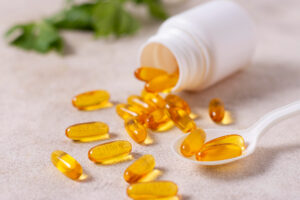As women age, their ovarian reserve decreases and the quantity and quality of eggs decline as each year passes – more and more becoming genetically abnormal over time.
Fertility depends on many factors, but there are steps you can take to improve egg quality. This article will outline strategies that may help.
1. Eat a Healthy Diet
As women age, their ovarian reserve – meaning the number of eggs available for fertilization – decreases, leading to decreased egg quality when they do become fertilized and miscarry early (often before even realizing she’s pregnant). Unfortunately this often results in miscarriage resulting from aneuploidy; an issue which often results in birth defects, developmental issues and early miscarriage before even knowing they’re expecting.
To promote egg health it’s essential to make healthy food choices, particularly by limiting refined sugars and processed foods. Drinking plenty of water also plays a key role, boosting blood flow to the ovaries. Furthermore, physical exercise helps lower stress levels while improving sleep patterns – two essential components for optimal egg production.
Alongside leading a healthy diet and lifestyle, it is also beneficial to take supplements like CoQ10, Melatonin and Fish Oil, which have been shown to promote mitochondrial function, reduce oxidative damage and promote ovulation among women of advanced maternal age. Folic Acid can also be helpful; you’ll find it in fortified breakfast cereals, leafy vegetables, legumes and nuts; it is recommended that women taking fertility treatments also consume 400mcg daily of Folic Acid as part of their regiment.
2. Get Regular Exercise
Exercise can improve egg health by increasing oxygen-rich blood flow to the ovaries and helping sperm more easily fertilize an egg, as well as flushing out any toxins that might hinder fertility. Low-impact exercises like walking, yoga and reclining hero pose can all be great ways of increasing blood circulation when combined with breathing techniques; drinking lots of water to avoid dehydration also plays an important role.
Sleep is essential to egg health as well as general wellbeing, helping the body repair cells, replenish energy stores, and produce hormones. Poor sleeping habits and elevated cortisol levels have been linked to infertility issues; to ensure maximum effectiveness of hormone production it’s recommended that adults sleep for 7+ hours each night.
Egg quality is one of the main determinants of female fertility. Women lose eggs as they age, with older women more likely to produce low-quality eggs when trying to conceive. While it is possible to improve egg quality through diet changes, exercise, managing stress levels and taking certain supplements, starting early to make these lifestyle changes increases chances of conception at later ages. For more information about egg quality and fertility issues in Cool Springs visit an OBGYN or reproductive endocrinologist for testing today.
3. Manage Your Stress Levels
While you cannot change how quickly you age, lifestyle modifications may help increase egg quality and fertility. Regular exercise, eating healthful food and managing stress levels all play a part in increasing egg health and fertility.
To gain a clearer idea of your egg quality, it’s wise to undergo a transvaginal ultrasound test prior to ovulation. This test can reveal the number of follicles which have grown enough for production; less available follicles means reduced chances of successful pregnancy.
An essential step when trying to conceive is taking steps to increase egg health and fertility. You can do this by cutting back on smoking and alcohol consumption, maintaining a healthy weight through regular exercise sessions, and managing stress effectively.
Regular exercise can help increase blood flow to the ovaries and promote a healthier hormonal balance, improving insulin sensitivity and decreasing inflammation – two contributors to poor egg quality. It’s also important to reduce stress through practices like yoga, meditation or deep breathing exercises; too much cortisol production from stress can disrupt menstrual cycles by inhibiting ovulation; it also decreases egg-protecting estradiol production, leading to abnormal embryo formation that could result in miscarriage.
4. Take Supplements
As women age, their ovarian reserve decreases, leading to less eggs available for reproduction and lower egg quality – both factors which may impede fertility and result in failed conception attempts. It is therefore crucial that as much effort as possible be made towards increasing egg quality before trying for conception (TTC).
Folic acid supplements, for example, have been proven to boost egg quality by creating an ideal environment for embryo development. To maximize benefits, it is advised that women consume a diet high in folate content containing leafy green vegetables, breakfast cereals and fortified dairy products along with taking daily 400mcg doses of Folic acid supplements.
Coenzyme Q10, an anti-aging natural compound, has been demonstrated to increase ovarian reserve and egg quality by increasing energy production within mitochondria – the organelle responsible for producing energy within our cells. Omega 3 fatty acids, DHEA and inositol have all been shown to promote egg health and fertility; additionally reducing consumption of harmful toxins such as alcohol or cigarettes may help too! To learn more about optimizing egg health and fertility contact a reproductive endocrinologist near you today.





